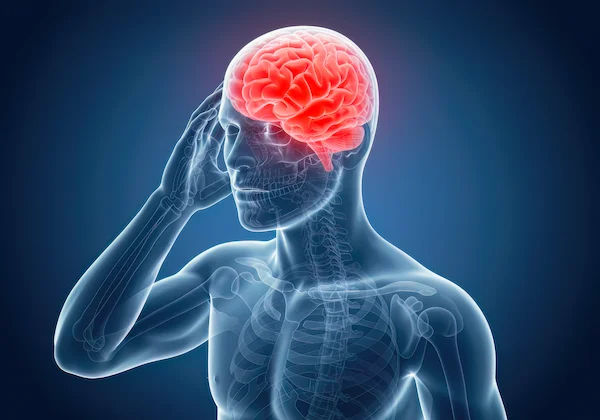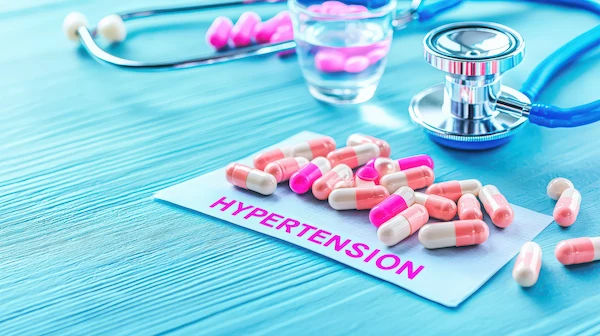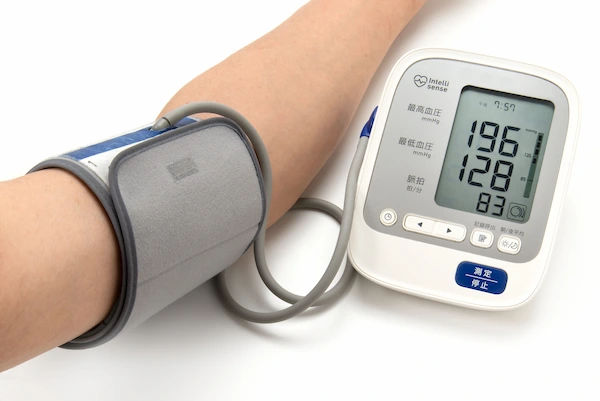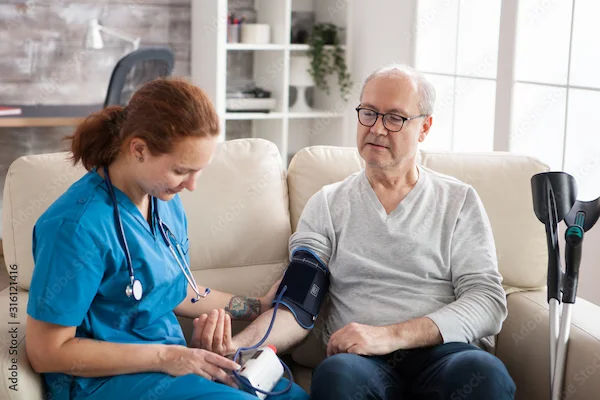Your Guide to Managing Hypertension and Taking Control of Your Health
Know about hypertension, what it is, lifestyle modifications, management and treatment options, and a holistic approach for hypertension and more.

Written by Dr. Rohinipriyanka Pondugula
Reviewed by Dr. D Bhanu Prakash MBBS, AFIH, Advanced certificate in critical care medicine, Fellowship in critical care medicine
Last updated on 13th Jan, 2026
.webp?tr=q-80,f-webp,w-350,dpr-2,c-at_max 700w)
Introduction
Hypertension, or high blood pressure, is far more than just a number on a screen; it's a pervasive force that silently strains your heart and arteries, significantly increasing your risk for heart disease, stroke, and kidney failure. Often presenting with no obvious symptoms, it’s aptly known as the "silent killer," affecting nearly one in three adults. This comprehensive guide is designed to be your roadmap, offering evidence-based strategies from dietary shifts and exercise plans to stress management and medical options to help you lower your numbers, protect your health, and reclaim control of your well-being.
What is Hypertension? Understanding the Silent Killer
Hypertension is a chronic medical condition where the force of blood against your artery walls is consistently too high. This relentless pressure can damage blood vessels and vital organs over time. It's diagnosed when readings, taken on multiple occasions, are consistently at or above 130/80 mmHg.
Consult a Top Cardiologist for Personalised Advice
Systolic vs. Diastolic: Reading the Numbers
Systolic pressure (the top number): Measures the pressure in your arteries when your heart beats.
- Diastolic pressure (the bottom number): Measures the pressure in your arteries when your heart rests between beats.
- Both numbers are important, but for older adults, elevated systolic pressure is a more significant risk factor for cardiovascular events.
Why Unmanaged Hypertension is Dangerous?
Left unchecked, high blood pressure is a primary contributor to a host of severe health complications. It accelerates atherosclerosis (hardening of the arteries), which can lead to a heart attack. It can cause blood vessels in the brain to weaken and burst or become blocked, leading to a stroke. It also forces your kidneys to work overtime, potentially resulting in kidney disease or failure. The constant strain can also lead to heart failure, vision loss, and sexual dysfunction.
The First Line of Defense: Powerful Lifestyle Modifications
Before or alongside medication, lifestyle changes are the cornerstone of managing high blood pressure naturally. For many with mild hypertension, these changes can be powerful enough to bring numbers into a healthy range.
Adopting a Heart-Healthy Diet
What you eat directly impacts your blood pressure. A diet rich in whole foods and low in processed items is key.
The DASH Diet Explained: Your Nutritional Blueprint: The Dietary Approaches to Stop Hypertension (DASH) diet is consistently ranked as one of the best diets for heart health. It emphasises fruits, vegetables, whole grains, lean proteins, and low-fat dairy while reducing saturated fat, cholesterol, and sweets. Studies have shown it can lower systolic blood pressure by 8-14 points.
The Critical Role of Reducing Sodium Intake: Sodium causes your body to retain water, increasing blood volume and pressure. The American Heart Association recommends no more than 2,300 mg a day, moving toward an ideal limit of 1,500 mg. Be wary of hidden sodium in bread, canned soups, processed meats, and restaurant meals.
Boosting Potassium-Rich Foods: Potassium helps balance the amount of sodium in your cells and eases tension in blood vessel walls. Excellent sources include bananas, spinach, sweet potatoes, avocados, and beans.
The Importance of Regular Physical Activity
Exercise strengthens your heart, enabling it to pump blood with less effort, which reduces the force on your arteries.
Best Types of Exercise for Blood Pressure: A combination is ideal:
- Aerobic Exercise: Brisk walking, jogging, cycling, swimming. Aim for at least 30 minutes most days.
- Strength Training: Lifting weights or using resistance bands at least two days a week.
- How Much Exercise Do You Really Need? The magic number is at least 150 minutes of moderate-intensity aerobic activity or 75 minutes of vigorous activity per week. Even small amounts of activity can make a difference.
Achieving and Maintaining a Healthy Weight
Blood pressure often increases as weight increases. Being overweight can also cause disrupted breathing while you sleep (sleep apnea), which further raises blood pressure. Weight loss is one of the most effective lifestyle changes for controlling blood pressure. Losing just 5-10% of your body weight can have a significant impact.
Limiting Alcohol and Quitting Tobacco
- Alcohol: In small amounts, it can potentially be harmless, but too much can raise blood pressure by several points. It can also reduce the effectiveness of blood pressure medications. Limit consumption to no more than one drink per day for women and two for men.
- Tobacco: Every cigarette you smoke causes a temporary spike in blood pressure. The chemicals in tobacco can also damage the lining of your artery walls, causing them to narrow and increasing your long-term risk. Quitting is one of the best things you can do for your heart.
Medical Interventions: When Lifestyle Isn't Enough
For some individuals, lifestyle changes alone are not sufficient to control hypertension. This is where medication becomes a crucial tool.
Common Classes of Blood Pressure Medications
Doctors have a wide arsenal of drugs, often used in combination. These include:
- Diuretics ("water pills"): Help your kidneys eliminate sodium and water, reducing blood volume.
- ACE Inhibitors & ARBs: Relax blood vessels by blocking the formation or action of a natural chemical that narrows them.
- Calcium Channel Blockers: Help relax the muscles of your blood vessels.
- Beta-blockers: Reduce your heart rate and the heart's output of blood.
The Importance of Medication Adherence
Prescribed medication only works if you take it consistently. Skipping doses can lead to dangerous spikes in blood pressure. If you experience side effects, don't just stop taking your pills. Consult a doctor online with Apollo24|7 to discuss your concerns; they can often adjust your dosage or switch you to a different medication with fewer side effects.
Beyond Diet and Pills: Holistic Management Techniques
- Stress Management: Taming a Major Trigger
- When you're chronically stressed, your body is in a constant fight-or-flight mode, leading to a higher heart rate and constricted blood vessels. Identifying your stressors and developing healthy coping mechanisms is vital. Techniques include:
- Deep breathing exercises
- Meditation and mindfulness
- Yoga or Tai Chi
- Spending time in nature
- Engaging in hobbies
The Role of Quality Sleep in Blood Pressure Regulation
Your blood pressure naturally dips while you sleep. Consistently sleeping less than 6 hours a night means your body spends more time with higher blood pressure. Conditions like sleep apnea, characterised by repeated stops and starts in breathing, are a major cause of secondary hypertension. Treating sleep apnea and prioritising 7-9 hours of quality sleep per night can significantly improve your numbers.
Monitoring and Long-Term Management
How to Monitor Your Blood Pressure at Home?
Home monitoring can help you track your progress, confirm a diagnosis, and alert you to potential health complications. Use a validated, automatic, upper-arm cuff monitor. Take readings at the same time each day, such as morning and evening, while seated and rested. Keep a log to share with your doctor.
Building a Partnership with Your Doctor
Hypertension management is a lifelong partnership. Regular check-ups are essential. Your doctor will help you set target goals, monitor for side effects, and adjust your plan as needed. Be open and honest about your challenges and progress. Apollo24|7 offers convenient home collection for tests like kidney function panels and cholesterol checks that are crucial for monitoring the long-term effects of hypertension.
Conclusion
Managing hypertension is a proactive and empowering journey, not a passive diagnosis. It requires a commitment to a holistic approach that combines a nutrient-rich diet, consistent physical activity, sustainable weight management, and effective stress reduction. While these lifestyle changes for high blood pressure form the powerful foundation, modern medicine provides essential support when needed. Remember, small, consistent steps lead to significant, lasting results. By taking control of your daily habits and working closely with your healthcare provider, you can effectively lower your blood pressure, drastically reduce your risk of life-threatening complications, and invest in a longer, healthier, and more vibrant life. Start today, your heart will thank you for years to come.
Consult a Top Cardiologist for Personalised Advice
Consult a Top Cardiologist for Personalised Advice

Dr. Anand Ravi
General Physician
2 Years • MBBS
Bengaluru
PRESTIGE SHANTHINIKETAN - SOCIETY CLINIC, Bengaluru

Dr. Zulkarnain
General Physician
2 Years • MBBS, PGDM, FFM
Bengaluru
PRESTIGE SHANTHINIKETAN - SOCIETY CLINIC, Bengaluru

Dr. Sumanjita Bora
Cardiologist
9 Years • MBBS, PGDCC
Bengaluru
Apollo Clinic, Sarjapur Road, Bengaluru
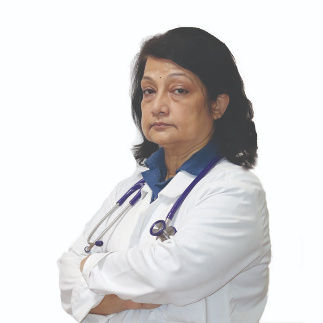
Dr. Tripti Deb
Cardiologist
40 Years • MBBS, MD, DM, FACC, FESC
Hyderabad
Apollo Hospitals Jubilee Hills, Hyderabad

Dr. Ramalinga Reddy
General Physician
5 Years • MBBS MD General medicine
Bengaluru
PRESTIGE SHANTHINIKETAN - SOCIETY CLINIC, Bengaluru
Consult a Top Cardiologist for Personalised Advice

Dr. Anand Ravi
General Physician
2 Years • MBBS
Bengaluru
PRESTIGE SHANTHINIKETAN - SOCIETY CLINIC, Bengaluru

Dr. Zulkarnain
General Physician
2 Years • MBBS, PGDM, FFM
Bengaluru
PRESTIGE SHANTHINIKETAN - SOCIETY CLINIC, Bengaluru

Dr. Sumanjita Bora
Cardiologist
9 Years • MBBS, PGDCC
Bengaluru
Apollo Clinic, Sarjapur Road, Bengaluru

Dr. Tripti Deb
Cardiologist
40 Years • MBBS, MD, DM, FACC, FESC
Hyderabad
Apollo Hospitals Jubilee Hills, Hyderabad

Dr. Ramalinga Reddy
General Physician
5 Years • MBBS MD General medicine
Bengaluru
PRESTIGE SHANTHINIKETAN - SOCIETY CLINIC, Bengaluru
More articles from Blood Pressure Changes
Frequently Asked Questions
Can hypertension be cured?
Hypertension is typically a chronic condition that can be effectively managed but not always 'cured.' Through sustained lifestyle changes and, if necessary, medication, most people can achieve and maintain healthy blood pressure levels for life.
What are some symptoms of high blood pressure?
Often, there are none, which is why it's called the silent killer. Severe hypertension can cause headaches, shortness of breath, nosebleeds, or flushing, but relying on symptoms is dangerous. The only way to know is to get checked regularly.
Are there natural supplements that lower blood pressure?
Some supplements like garlic, hibiscus, and omega-3s may have a modest effect. However, you should never use them to replace prescribed medication without consulting your doctor, as they can interact with other drugs.
How often should I check my blood pressure at home?
If your hypertension is well-controlled, checking a few times a week is sufficient. If you've just started a new treatment or your numbers are not stable, your doctor may advise checking daily. Always follow your doctor's specific recommendation.
Does coffee raise blood pressure?
Caffeine can cause a short, sharp spike in blood pressure, even in people without hypertension. If you're a regular drinker, you may develop a tolerance. It's best to monitor your own reaction and consume it in moderation.
